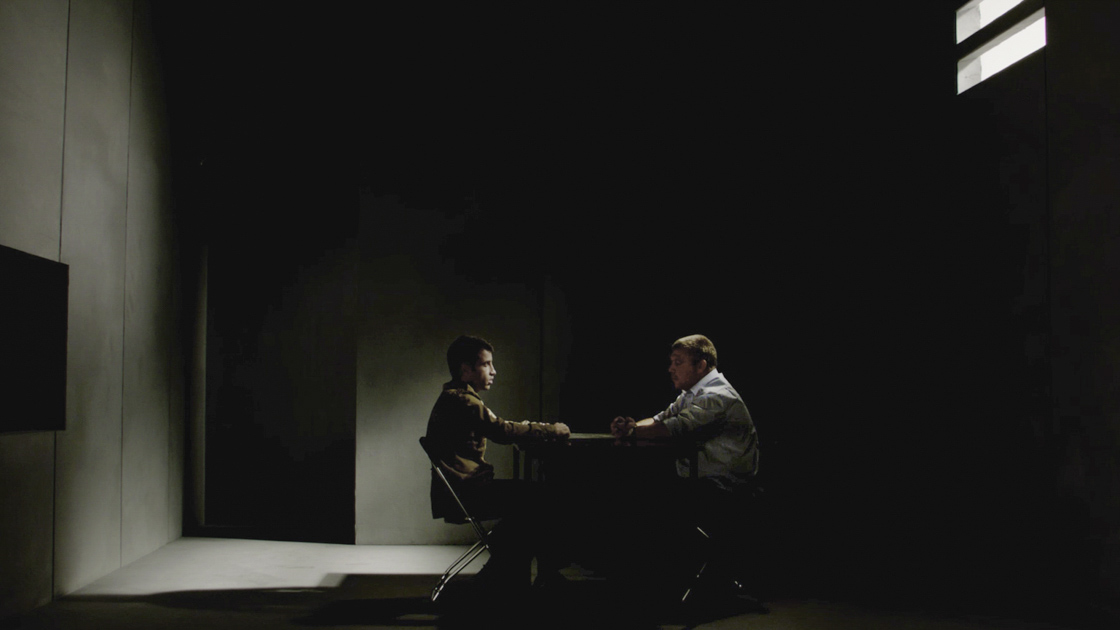Title: The Green Prince
Director: Nadav Schirman
Being the first film shown at the Sundance Film Festival is a noteworthy distinction. It isn’t entirely telling of a film’s quality or buzz, but it represents an important decision to kick off an extensive slate of programming with a particular project. Both Hollywood and the independent film community have shown an enthusiasm lately for films about the Israeli-Palestinian conflict. The success of The Gatekeepers and Five Broken Cameras last year makes the choice to start the 2014 Sundance Film Festival off with Nadav Schirman’s The Green Prince understandable, though this film is likely to leave viewers with a different if not entirely productive picture of its subject matter.
The Green Prince is the story of Mosab Hassan Yousef, the son of a Hamas leader who was arrested by Israeli forces and recruited to become an asset for Israeli’s security service, the Shin Bet. A clean-cut, wide-eyed Yousef recounts how he came to that place to the camera, excitedly sharing the events that shaped him and led him to his monumental decision to spy for the enemy. His testimony is complemented by a recap of developments on the other side from his Shin Bet handler, Gonen Ben Yitzhak. Over the course of the film, their relationship evolves from that of a conflicted teenager and his stoic supervisor to that of two friends.
The level of access to these two people is truly remarkable, and Yousef is eager to share everything that went into his transformation. Yitzhak is frank about his intentions and motivations throughout the process. The film intersperses their interviews with shots and illustrations of personalities such as Yousef’s father and a grid of the area in which he operated, as well as reenactments of their initial and subsequent meetings in prison, many of which are overdramatic and utilized again and again. More problematically, the film is essentially just two men speaking and telling their individual story. No coworkers, sympathizers, or outside experts are consulted. Their words are meant to be taken for what they are, with little other than their passion to support their claims.
The Green Prince, which takes its title from Yousef’s Shin Bet codename, aims to present a balanced portrait of the Middle East, not taking sides in the conflict or choosing one over the other. Yousef explains that his hatred for Israelis came from his father being arrested and detained for years at a time by Israel, while Yitzhak breaks down the necessity of the operation. The attempt at balance here is commendable, but the film’s effectiveness as a documentary comes back to the fact that its subject is equally an emotional one as much as it is a historical one. Religion and culture are barely addressed, and the specifics of who Yousef and Yitzhak are as people are never quite revealed. This is a singular story, but the film takes a narrow approach that doesn’t seek to capture the greater situation. That in itself may be telling, but the film feels all too focused without bothering to ponder other events and dynamics.
As interview subjects, neither Yousef nor Yizthak are particularly compelling. The fact that English is not the native language of either speaker probably doesn’t help, and perhaps their interviews should have been conducted in Arabic and Hebrew, respectively. Yousef pauses and stutters during his interviews, and often repeats his points. As a look into his psyche and personality, it is extremely worthwhile, but less so for the purpose of this film. Yizthak is a pure by-the-book operations man, emphasizing his job as vital rather than trumpeting his sense of allegiance to his country. There is plenty of emotion and passion in what Yousef says, but The Green Prince fails to capture that same spirit in its overall construction.
This Sundance Film Festival World Cinema Documentary Competiton entry has held several public screenings in Park City thus far, with more scheduled.
Technical: B-
Story: B-
Overall: B-
Written by Abe Fried-Tanzer

